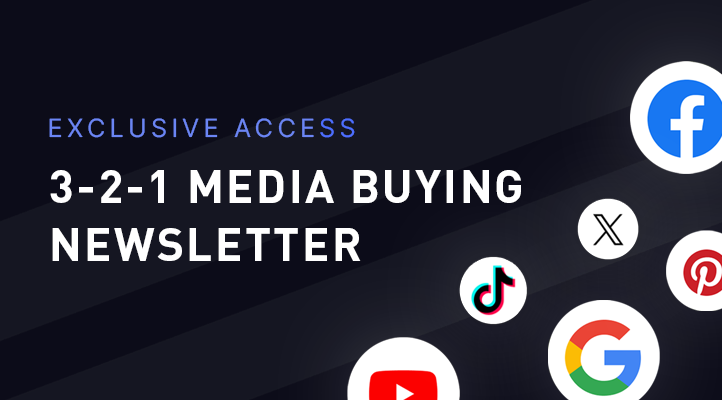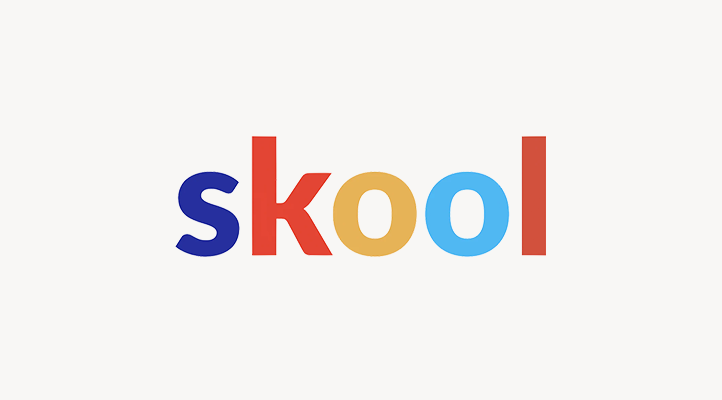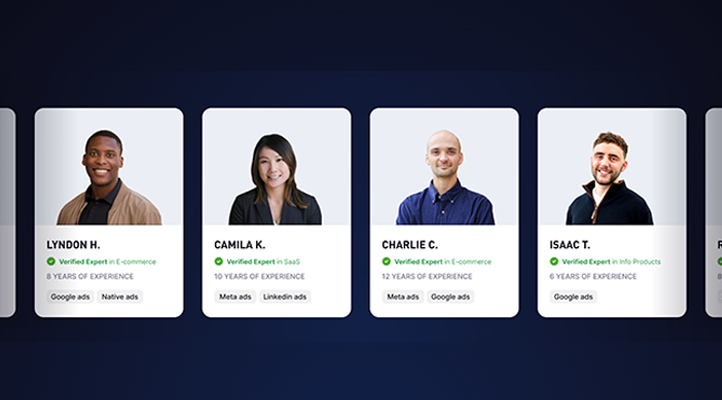I. Introduction
Here’s the thing about Media Buying—it’s easy to fall prey to misconceptions about what drives successful advertising campaigns. One of the most pervasive (and frustrating) myths is the idea that hiring a media buyer is the ultimate solution to all marketing woes. Many entrepreneurs and business owners mistakenly believe that a skilled media buyer can wave a magic wand, produce astronomical returns on investment (ROI), and allow them to sit back and relax while the profits roll in.
Today, we’re going to dispel this misconception and shed light on the true factors that contribute to successful advertising campaigns. We’ll explore why the media buyer, while important, is not the secret sauce to marketing success. Instead, we’ll delve into the critical elements that form the foundation of effective advertising: your offer, your funnel, and your messaging.
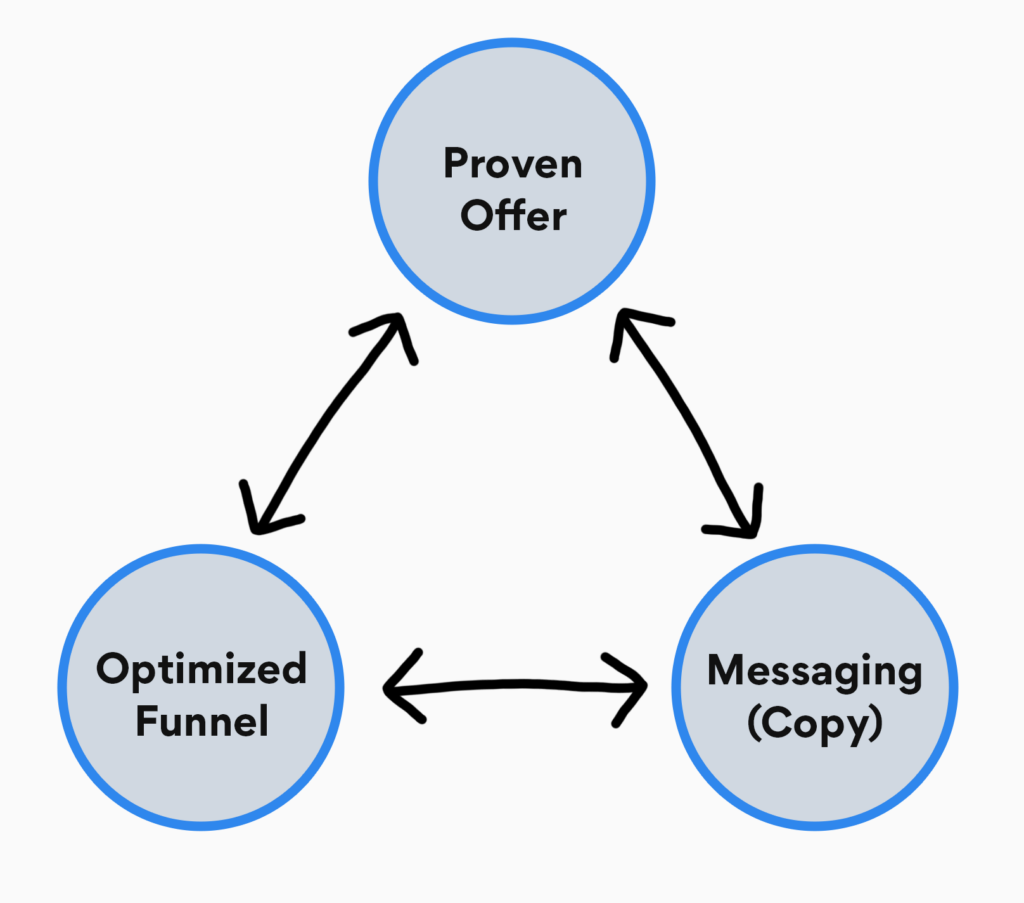
We’ll examine the actual role of media buyers and when it’s appropriate to bring them on board. We’ll also discuss the limitations of even the most skilled media buyers when faced with subpar products or poorly optimized funnels. By understanding these concepts, you’ll be better equipped to make informed decisions about your marketing strategy and resource allocation.
So, whether you’re a seasoned marketer looking to refine your approach or a newcomer to the world of digital advertising, I’m going to provide valuable insights into what really drives successful campaigns. Let’s dive in and uncover the truth behind the media buyer myth, exploring the elements that truly make or break your advertising efforts.
II. The Truth About Media Buyers
Let’s start by debunking the “magic wand” myth surrounding media buyers. While these professionals play a crucial role in advertising campaigns, they are not miracle workers who can turn any product or service into an instant success. The idea that you can hire a media buyer, sit back in Cabo, and watch the money roll in is far from reality.
Media buyers are specialists who focus on purchasing advertising space and time across various platforms. Their expertise lies in understanding audience demographics, analyzing data, and optimizing ad placements to maximize reach and effectiveness. However, their success is heavily dependent on the quality of the product, the strength of the offer, and the effectiveness of the overall marketing strategy.
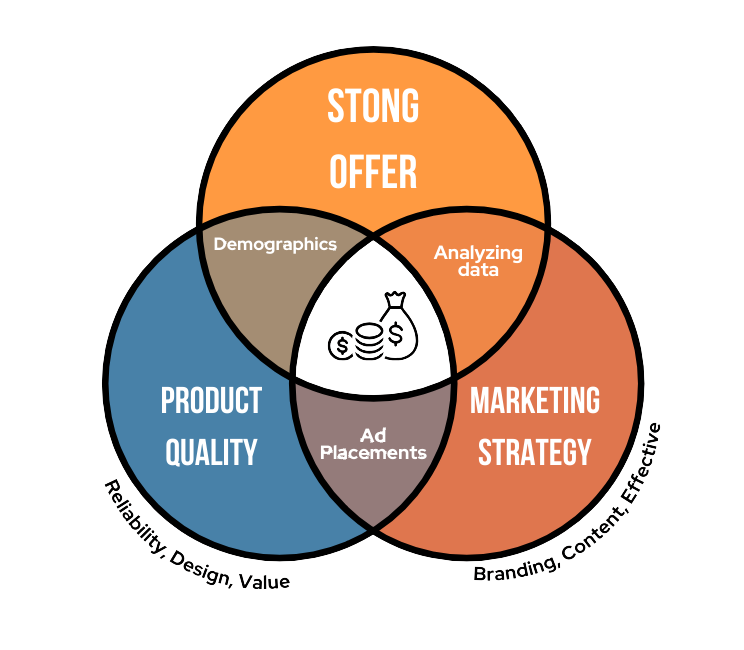
The actual role of media buyers in advertising is to enhance and scale what’s already working. They excel at fine-tuning campaigns, identifying the most effective channels, and allocating budgets to achieve the best possible results. Media buyers are there to do more of what’s working and less of what’s not by conducting extensive testing and analysis.
These professionals are typically both highly data-driven and creative. They combine analytical skills to interpret complex metrics with creative thinking to develop innovative ad strategies. Their job involves constant testing, learning, and adapting to find those asymmetric returns that can significantly boost campaign performance.
However, it’s crucial to understand that media buyers are not magicians who can make a flawed product or weak offer suddenly appealing to the market. They can optimize and improve, but they can’t fundamentally change the appeal of your core offering. Think of them as skilled drivers who can get the most out of a well-built car, rather than mechanics who can transform a jalopy into a racing machine.
In the following sections, we’ll explore what truly forms the foundation of successful advertising and how to leverage the skills of media buyers effectively.
III. The Foundation of Successful Advertising
At the heart of every successful advertising campaign lies a solid foundation built on three key elements: your offer, your funnel, and your messaging. However, the most critical factor underpinning all of these is the quality of your product or service itself.

First and foremost, your offer needs to be compelling. It should address a genuine need or desire in your target market, providing clear value that sets it apart from competitors. A strong offer is the cornerstone of any successful campaign – without it, even the most brilliant advertising strategy will fall flat.
Next, your funnel plays a crucial role in guiding potential customers from initial awareness to final purchase. An effective funnel should be well-designed, user-friendly, and optimized for conversions at every stage. It should seamlessly lead prospects through the buyer’s journey, addressing their concerns and reinforcing the value of your offer along the way.
Your messaging is the voice of your campaign, communicating your offer’s value proposition and guiding customers through your funnel. Effective messaging resonates with your target audience, speaks to their pain points, and clearly articulates how your product or service can improve their lives. It should be consistent across all touch points and tailored to each stage of the customer journey.
Underlying all of these elements is the quality of your product or service. As the saying goes, “Your ads are only as good as your product.” No amount of clever marketing can compensate for a subpar offering. A truly great product not only satisfies customers but can also generate positive word-of-mouth, reducing your reliance on paid advertising in the long run.
Remember, these foundational elements work synergistically. A fantastic product with poor messaging or a clunky funnel won’t reach its full potential. Conversely, brilliant messaging can’t save a weak offer. Success in advertising comes from aligning all these components to create a cohesive and compelling customer experience.
IV. The Limitations of Media Buyers
To truly understand the role of media buyers, it’s crucial to recognize their limitations. No matter how skilled or experienced a media buyer is, they cannot overcome fundamental flaws in your product, offer, or marketing strategy. Two analogies can help illustrate this point.
First, consider the “broken car” analogy. Imagine Michael Schumacher, one of the greatest Formula 1 drivers of all time, sitting behind the wheel of a car with a broken engine. No matter his exceptional skill, he simply cannot win the race. The car’s fundamental flaw prevents any chance of victory, regardless of the driver’s talent. Similarly, even the most skilled media buyer cannot generate profitable ads if the offer isn’t proven or if the funnel is poorly optimized.

Now, think about a world-class sales representative trying to sell a product that nobody wants. Despite their persuasive techniques, charisma, and sales expertise, they’ll struggle to make sales if the product itself doesn’t meet a market need or solve a real problem. The same principle applies to media buying – exceptional ad placement and optimization can’t compensate for a product that the market doesn’t desire.
These analogies highlight a crucial point: media buyers are not miracle workers. They can’t turn a bad product into a good one, nor can they create demand where none exists. Their role is to optimize and enhance campaigns for products and offers that already have potential for success.
Understanding these limitations is key to setting realistic expectations when working with media buyers. It’s unfair and unproductive to expect them to salvage a failing product or create success out of thin air. Instead, their expertise should be leveraged to amplify and scale what’s already showing promise.
In the next sections, we’ll explore when and how to effectively engage a media buyer to maximize your advertising success.
V. When to Hire a Media Buyer
The ideal time to hire a media buyer is when you already have a product or service that’s showing promise in the market. You should have evidence that your offer resonates with your target audience and that your funnel is capable of converting leads into customers. In essence, you’re bringing in a media buyer to improve and scale what’s already working.
Media buyers excel at optimizing campaigns and finding ways to do more of what’s working while cutting back on what’s not. They achieve this through extensive testing and data analysis. When you hire a media buyer at the right time, you can effectively tell them, “I already know this works; I simply need you to take what is working and run with it.”
Effective media buyers are typically individuals who possess a unique blend of analytical and creative skills. On the analytical side, they’re data-driven professionals who can dive deep into metrics, interpret complex analytics, and make informed decisions based on hard numbers. They understand the intricacies of various advertising platforms and can optimize campaigns for maximum ROI.
On the creative side, media buyers often have a keen understanding of creative strategy. They can provide valuable input on ad creatives, helping to ensure that the visual and textual elements of your ads align with your overall strategy and resonate with your target audience.
One of the key strengths of skilled media buyers is their ability to find asymmetric returns. Through rigorous testing and optimization, they can identify opportunities where a small increase in ad spend or a minor tweak to targeting can result in disproportionately large gains in performance.
Remember, hiring a media buyer is about amplifying success, not creating it from scratch. When you bring them on board at the right time – when you have a proven concept – you’re setting the stage for significant growth and improved campaign performance.
VI. The Wrong Way to Hire a Media Buyer
One of the most common mistakes businesses make is hiring a media buyer prematurely, hoping they’ll be the silver bullet that solves all their marketing problems. This approach is fundamentally flawed and often leads to disappointment and wasted resources.

If you have a product that the market doesn’t want or need, it doesn’t matter if you hire the best media buyer in the world. They won’t be able to generate good results because the core issue lies with the product-market fit, not with the advertising strategy. It’s crucial to understand that media buyers can optimize and scale what works, but they can’t make an undesirable product suddenly appealing to consumers.
That said, it’s not always a bad idea to hire a media buyer for an unproven product. However, it’s essential to set realistic expectations. Don’t expect them to achieve miraculous results. Instead, their role in this scenario should be more about testing and gathering data to inform your product development and overall strategy.
For businesses with unproven products or concepts, it often makes more sense to take alternative approaches before hiring a media buyer. One option is to invest time in learning the basics of media buying yourself. There are numerous courses, YouTube tutorials, and online resources that can give you a solid foundation in digital advertising. This knowledge will not only help you run initial tests but also make you a more informed client when you do decide to hire a professional media buyer.
Another valuable approach is to seek mentorship or coaching from someone who has successfully done what you’re trying to achieve. An experienced mentor can provide insights into product development, market testing, and initial advertising strategies. They can guide you through the process of validating your product and establishing a baseline of success before you bring in a media buyer.
VII. The Right Way to Hire a Media Buyer
So here’s the deal…the optimal time to hire a media buyer is when you have a proven product that’s already demonstrating success in the market. This approach allows you to leverage the media buyer’s expertise to scale and optimize your existing success, rather than expecting them to create success from scratch.

When you have a product that’s already working, you can approach a media buyer with confidence and clear expectations. You can essentially say, “I already know this works, I simply need you to take what is working and run with it.” This gives the media buyer a solid foundation to build upon and clear metrics to improve.
It’s crucial to remember the “product first” principle when considering hiring a media buyer. Just as a talented sales representative can only do so much with a subpar product, even the most skilled media buyer can’t compensate for fundamental issues with your offering. Your product or service should already have demonstrated appeal to your target market before you invest in scaling your advertising efforts.
When hiring a media buyer, be prepared to provide them with detailed information about your product, target audience, and previous marketing efforts. The more data you can provide about what has worked (and what hasn’t) in the past, the better equipped they’ll be to hit the ground running.
Set clear, realistic goals for your media buyer. These might include improving your cost per acquisition, increasing your conversion rate, or expanding your reach to new audience segments. Be sure to establish key performance indicators (KPIs) that you’ll use to measure their success.
Remember, a good media buyer is a partner in your business growth. They should be able to provide insights and strategies that go beyond just managing your ad spend. Look for someone who can contribute to your overall marketing strategy and who understands your business goals.
VIII. Conclusion
In wrapping up our discussion on the role of media buyers in advertising campaigns, it’s crucial to dispel the myth that they are magical problem-solvers who can guarantee success regardless of the product or strategy. Instead, we’ve seen that media buyers are skilled professionals who can optimize and scale campaigns that already show promise.
The foundation of any successful advertising campaign lies in the quality of your product, the strength of your offer, the effectiveness of your funnel, and the resonance of your messaging. These elements form the bedrock upon which media buyers can build and optimize your campaigns.
We’ve explored the limitations of media buyers, using analogies like the world-class driver with a broken car and the expert salesperson with a product no one wants. These examples highlight that even the most talented media buyer cannot overcome fundamental flaws in your product or market fit.
The key takeaway is that hiring a media buyer should be done at the right time and with the right expectations. It’s not about finding someone to magically make an unproven product successful. Rather, it’s about bringing in an expert to take what’s already working and make it work even better.
For those with unproven products, we’ve discussed alternative approaches such as self-learning and seeking mentorship. These strategies can help you validate your product and establish a baseline of success before bringing in a media buyer.
Ultimately, successful advertising is about aligning all the elements – a great product, a compelling offer, an optimized funnel, effective messaging, and skilled media buying. When all these components work in harmony, that’s when you can expect to see truly impressive results from your advertising efforts.
Remember, there are no shortcuts to success in marketing. It takes a solid foundation, continuous learning, and strategic partnerships to achieve and sustain advertising success in today’s market.


